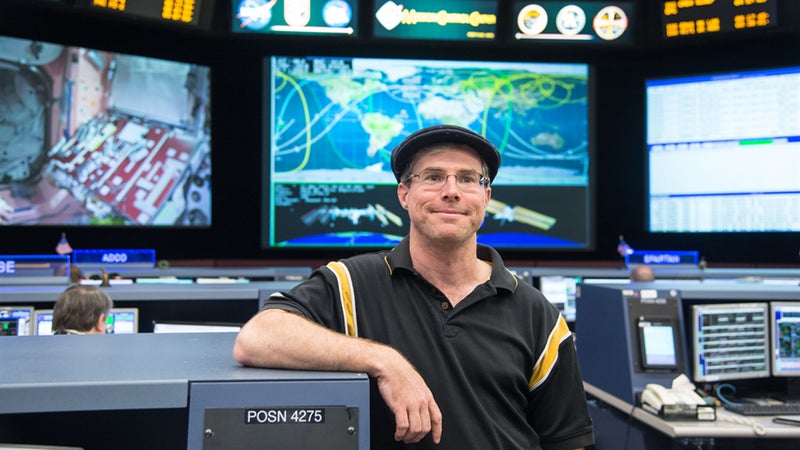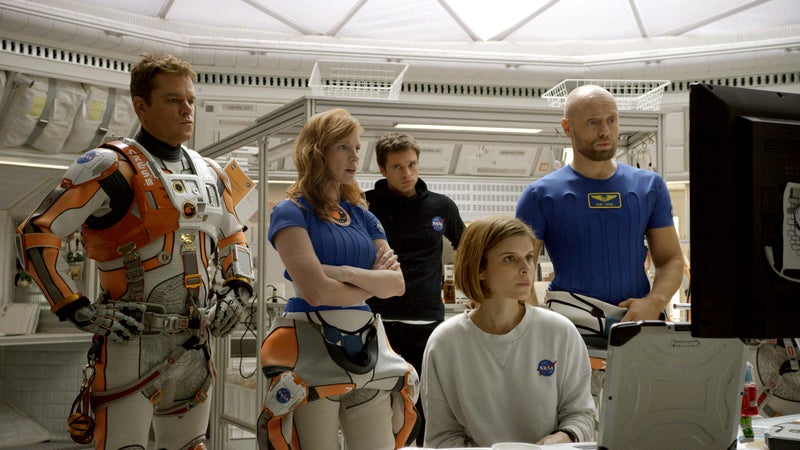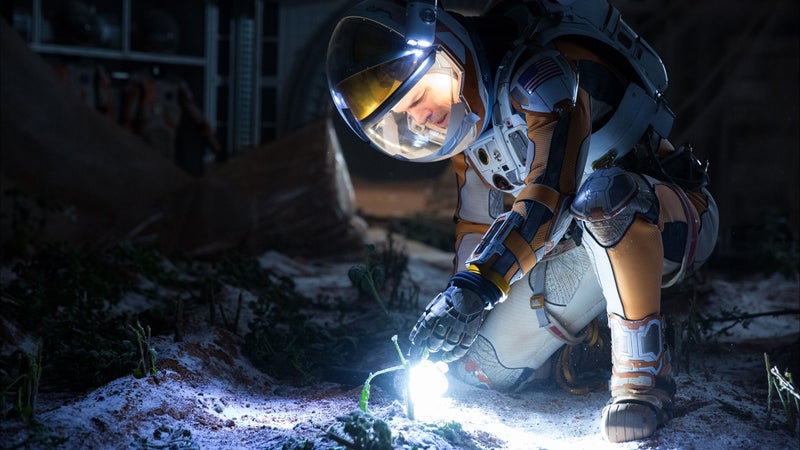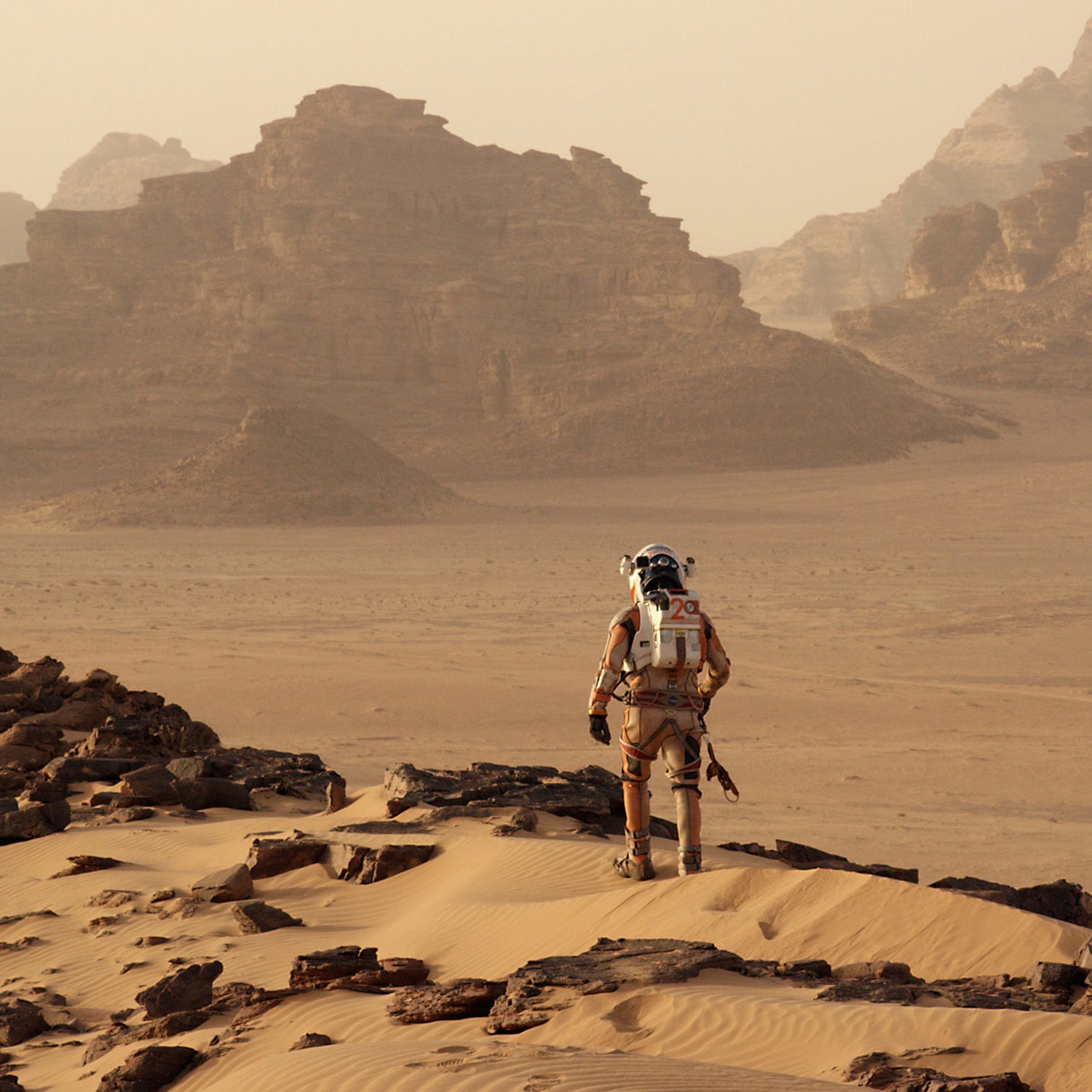Andy Weir first tried his hand at fiction writing two decades ago, when he was in his early 20s and working as a programmer for companies like AOL and video game maker Blizzard Entertainment. In his spare time he penned a novel—his first—about an interplanetary society where people undergo special surgeries to enhance their careers. No publisher wanted anything to do with it.
Fast forward to 2011. Weir, a self-described computer science geek, had posted several short stories to his website, , and gained a small but devoted readership. His work ranged from a supernatural piece about death, called “,” to fan fiction set in the universe of Doctor Who. Then he tried a new format—posting serial installments about a man left for dead on the Red Planet, titled The Martian. Set in the near future, the story chronicles American astronaut Mark Watney and his struggle to survive alone on Mars after being stranded there in a botched evacuation.
The website blew up.
Four years later, Weir’s web serial morphed into a best-selling paperback, occupying the top of the New York Times bestseller list. Now Ridley Scott’s film adaptation, starring Matt Damon, is due out October 2. The novel’s publication history is an extraordinary example of an artist successfully using the Web to circumnavigate traditional outlets for his work.

Apart from its critical acclaim, Weir’s story has also managed to ignite conversations about space exploration, with the Washington Post that The Martian may have given NASA enough of a PR boost to secure more funding in the future.
���ϳԹ��� recently caught up with Weir to talk about his thoughts on the upcoming movie and the future of space exploration.
OUTSIDE: The story has already ignited the conversation about a manned mission to Mars. What influence do you hope the movie and the book will have on space exploration in the future?
WEIR: I certainly hope that if it has an effect that it’s a good one. But that wasn’t my objective when I wrote the book. I don’t have a long-term goal. I don’t want to change people’s minds about anything. I don’t want to push an agenda. All I care about is that the reader enjoys himself or herself while they’re reading the book. But I’d love it if it turned out that it helped get NASA more funding or helped ignite interest in the space program.
When do you think we’ll send a person to Mars?
I always answer 2050. NASA says they can do it in the 2030s, and I have no doubt that they could if they had the funding, but I’d be surprised if Congress gave them enough funding.

What challenges do you see in a manned mission to Mars?
I think the main thing they should be working on is centripetal gravity. In other words, just having a spacecraft that spins to provide gravity for the occupants, because human bodies break down so much when they’re subjected to long-term weightlessness. Have you ever seen the astronauts returning from ISS [International Space Station]? They have to be lifted out of the capsule and put in lawn chairs on the ground. They can’t move after spending six months in zero gravity. So what happens if we have astronauts spend about that long in zero gravity, and then they need to step out of their capsule onto the surface of Mars?
What role do you see private corporations like SpaceX and Virgin Galactic playing in future space exploration?
I think they’re absolutely critical. I think the key to human kind’s future in space is reducing the cost of putting stuff into orbit. If you can get that cost down to the point where middle-class people can afford a vacation into space, then you will have effectively infinite demand. That’s when the companies will start cropping up, and when demand exceeds supply, we will have a genuine commercial space industry. It’ll be like the commercial airline industry—big, wealthy, lots of money to be made, lots of competitors, everybody driving the price down.
And then the vehicles. If you look commercial aircraft, they are masterpieces of technology. Here’s a thing that can take a couple hundred people from New York to L.A. It takes about five hours to do that, and then when it’s done, you don’t need to throw it away and make a new one or anything. You just add more fuel, and then it can do it again. And that’s where space vehicles will be eventually.
What kind of research went into writing The Martian?
Just lots and lots of sitting around, Google searches, and doing math. But that stuff is fun for me because I’m that kind of dork. I have a lifetime of being a science and space fan, so I had much more than a layman’s knowledge.
How faithful is the movie to the book?
It sticks to the book very well. I mean they had to take stuff out of course, because otherwise it’d be a 10-hour-long movie, but they didn’t really deviate from the plot.

How involved were you in the filmmaking process?
Well, mostly my job was to cash the check [laughs]. But they chose to involve me. Drew Goddard, who wrote the screenplay, called me almost every day while he was working on it. And when he had his first draft done he sent it to me to get feedback, and he made some changes based on my feedback and ignored other changes because it’s his screenplay. So I got to watch that kind of take shape. And then while they were filming, I would get questions filtered through intermediaries from Ridley about these deeply technical subjects. They had NASA and JPL advisors and stuff, but I was useful because I was an immediate response. They could just call me up and I’d be happy drop what I’m doing to answer.
Is there anything that they changed that you wish they hadn’t?
There are a few minor things, but it’s me being nit-picky. One thing I was sad about is that the Aquaman joke isn’t in there.
“He’s stuck out there. He thinks he’s totally alone and that we all gave up on him. What kind of effect does that have on a man’s psychology?” He turned back to Venkat. “I wonder what he’s thinking right now.”
LOG ENTRY: SOL 61 How come Aquaman can control whales? They’re mammals! Makes no sense.
I think it is one of the funniest moments of the book, and it didn’t make it into the movie. It was used in one of the , but it’s not in the movie and it was never in the screenplay.
Did they have to make any concessions given the difficulties of depicting people on Mars?
The biggest challenge is gravity. Mars’s gravity is 0.4 Gs, but there’s really no way to film partial gravity. So you just make that concession and everything is filmed in one G. They didn’t try to slow it down or anything like that to make it look like 0.4 Gs.
Can you tell us about the new book you’re working on?
Yeah, it’s tentatively titled Zhek, that’s a working title, and it’s a more traditional science fiction story, done my own way. It’s got aliens and faster-than-light travel and stuff like that. But I only have one little spot where I explain the made-up physics—the physics I had to invent. Everything else is either based on that or based on real physics. And the made-up physics don’t violate real physics.
What year is it set in?
Modern day.
So humans have achieved faster-than-light-speed travel?
No, the aliens have [laughs].


